.. The decisions adults make in a single second are intricately linked to childhood experiences, and the types of childhoods individuals undergo contribute to the formation of distinct adults. The central question in this field revolves around understanding how diverse childhoods influence the development of unique frontal cortexes and amygdalas. The key focus lies in deciphering the mechanisms through which early experiences exert a lifelong organizational impact on both the brain and behavior.
This exploration leads us into the fascinating realm of epigenetics. While genetics remains constant, experiences modify the regulation of genes when activated. An intriguing example involves rat mothers, where some exhibit superior mothering skills by frequently picking up, licking, and grooming their pups. This attentive mothering induces an epigenetic change in the pup's brain, resulting in lower stress hormone secretion as an adult. Remarkably, this behavioral trait is passed on not through genetic inheritance but through environmental experiences that trigger changes in gene regulation.
The same principle applies prenatally, where a rat fetus exposed to elevated stress hormones due to a stressed mother experiences epigenetic alterations. This leads to an enlarged amygdala, heightened reactivity to threats, and increased stress hormone levels in adulthood. Furthermore, these prenatal changes can influence the fetus, exposing subsequent generations to elevated stress hormones.
This underscores the profound impact of early environments on various aspects of brain and endocrine system development. Crucially, thanks to epigenetic changes that commence during fetal life, the influence of the environment is not limited to post-birth experiences but extends to long-lasting, lifelong, and even multi-generational effects.
Robert Sapolsky: The Biology of Humans at Our Best and Worst
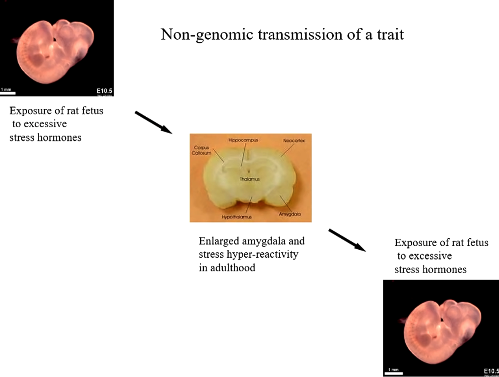
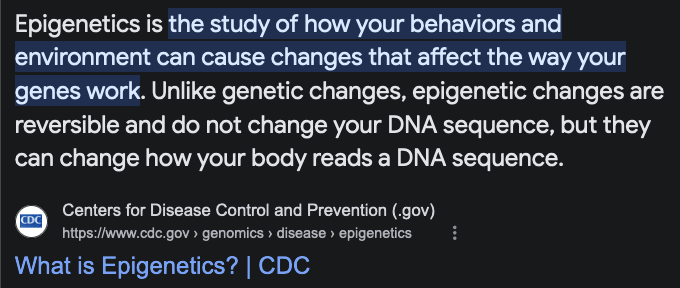
This sounds a lot like my missing puzzle in philosophy on what defines 'The Self', it amounts to saying, yes there are certain 'BASE' which is the DNA (nucleotide base) structure of what does it mean to be a 'Human', while 'The Self' is also encompass much of its 'Character' and certain things that may or may not be unique to that of the self, like how 'The Self' perceives love, affection, hate, agitation, and much of it that we know, the 'height' of it varies from person to person. On how 'Stress hormones' can wildly in and out (produced by the body out of external factors, can shape the structure of the brain).

For the sake of language, the brain is widly 'adaptable' to its environment, in which its contextual or subjectively perceived, yet previous experience can quite literally alter how the self perceives future context. It's no debate that a feeling of 'fear' is influenced/regulated by the amygdala, in which a fear-overdrive can also appear biologically appear and self-reinforcing.
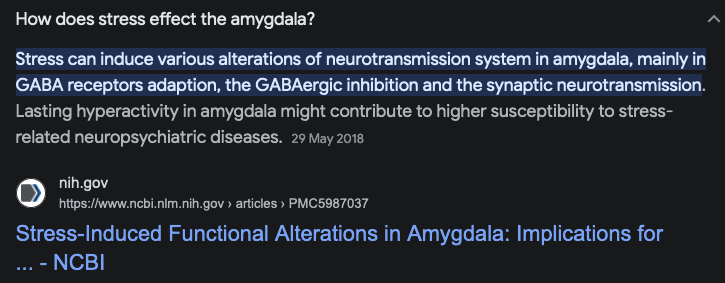
All of my articles has been a step of progress out of my curiosity to answer 'What does it mean to be a Human?' To dabble between biological and philosophical ideas, to further the answer can actually be awfully productive as it can decipher 'What does it mean to be a human and what does make certain humans does great things?' the implication of the answer can also shape 'what does it mean for a human to be fulfilled', though the pressure for me to answer such philosophical was also risen by my own unique experience that quite pushed me into answering this question very seriously. The process of it undeniably makes me happier, a self-reinforcing activity that continously proves itself to be something of value. I also sometimes wonder 'Why are other people are not as philosophical as me? Do they already got it all figured it out and I'm too dumb that I am struggling?'
One of the very first article that I wrote in 2023 talks about the subject of 'Free Will', though that is a recurrent conversation in the past with my friends, I heard many interesting arguments about it, and much flaws even from prior philosopher. One of them that I'd like to point out is Baruch Spinoza.
If we derive 'free will' from 'behavior' and 'decision-making' in which the essence of why we make our decisions are influenced by our 'perceival' of the world and how much of the external can shape our 'decision-making', he argues that as humans we posess very little to no influence to much of our external things that inevitably shaped us, this is true to some extent as for example if I were to ask you 'How much of a different person would you think you'd be had you were raised by a different parent?' This question that I asked to my friends, I unequivocally, receive a monotonous answer, which is yes they will become a different person and how they perceive the world would be different, their character would also be different. Then if that's the case the decision that they made were never been 'truly theirs' as how they 'rationalize' their decisions are shaped by their external environment that they have very little to no control over, (i.e parents, country, friends in school, etc). Thus, Spinoza doesn't believe in free will.
I posess a different argument to Spinoza's outlook, in which as much a lot of my friends kind of believe that Spinoza is right, much to add weight to the 'Naturalist' argument, that "Oh yeah, our behavior appears to be 'rewarded' by our neural circuitry with the apparent production of dopamine', yes much of that is true, but it doesn't mean we don't have free will. The biological and neurochemical processes that defines and reinforce behavior and decision making does indeed happened, but that doesn't determine that we don't have free will.
If a 'naturalist' would eventually support the notion of 'neurochemical driven free-will' and admit that 'free will' is an illusion, then they must succumb to the notion holistically, in which I think they haven't. Evolution does indeed happen and the whole context of evolution is basically saying that a random mutation in the genes occurs in which those mutations 'sometimes' rewards the species in 'surviving better' and increase its chance in reproducing its offspring and spread its genetic pools. From out of the fact that life exist as a system that expands energy to maintain itself and it is selected to get better at doing that exact thing.
The Eye.
It's no rocket science that the species that first is aware of temperature, light, and movement in its surroundings through sensory perception of a primitive sense of 'eye' in a sense that an eye is what enables the species to be 'more aware' of its surrounding that increase it chances of survival. Then if we brought the concept 'nervous system' then it's just a method of 'registering information' coming from outside to inside as 'context'. For example, for a Hydra it can sense, 'I sense a touch of an organism instead of a push of water, therefore I must do X to activate my muscle nerve.


Then we arrive to a context that 'the eye' adapt to its environments. We can't say that 'our eye is superior to those of other beings' because that is very context dependent.
Context dependent to its survival. In which survival is just a sense that those beings with those 'settings' are more favored to survive and pass its genes and therefore creates more of them. In a condition that it has reached 'peak efficiency' while genetic mutations can still occur, the 'success' or rather 'fitness' of those new species arrived to existence, has to be context dependent of its environment that it favors the new species traits more than of its ancestor. This is practically dog breed 101. While it has been easier for us to perceive that 'Golden Retrievers' are relatively recent as per 1868 Source, Britannica, it's much harder for us to imagine what the same rule of evolution (regardless of cross breed) can do across millenia or millions of years in an ever changing environment. But we can see from what has happened.
Bilateral Symetry
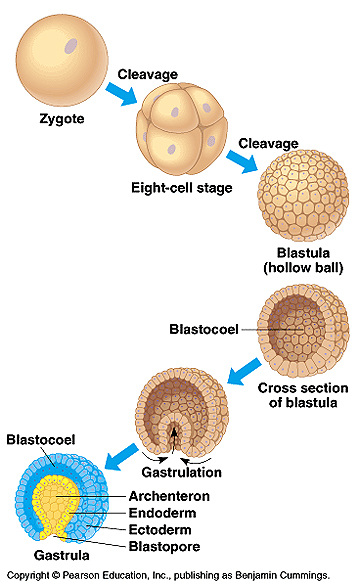

From the moment of our birth, from a zygote as a single cell to an embryo with two identical brains (the left and right), we are aware of our x, y, and z axis. Not through our consent, but through our 'nature', in which from a a single cell, it regulates itself to form distinct cells as 'ectoderm-derived cells', 'mesoderm-derived cells', and 'endoderm-derived cells' each to its own functionalities.
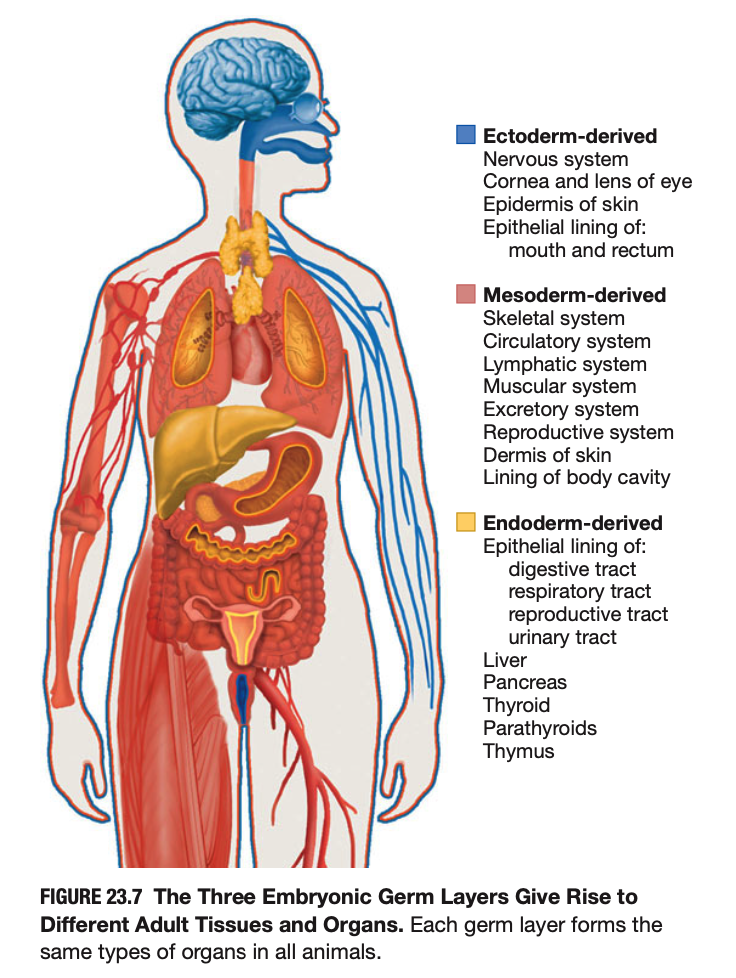
It has a common theme amongst all animals, the dissection of those organs, muscles, and skins, at the early stage of the embryo, a gradual celullar division and distinction of development from mouth to anus, there's a gauging hole.

Up to this point, this supports our understanding of what it means to be a 'biological human' at least the basic ectoderm, mesoderm, endoderm sense of a being. But we have more 'sophisticated' sense of 'awareness' than our animal counterparts, while as much as we think we are sophisticated out of a sense of 'reasoning' and 'emotions', we haven't truly walk as far from the existential nihilism of 'existence', the inherent nihilism of life and the choice to opt out of life freely.
Stress and Suicide
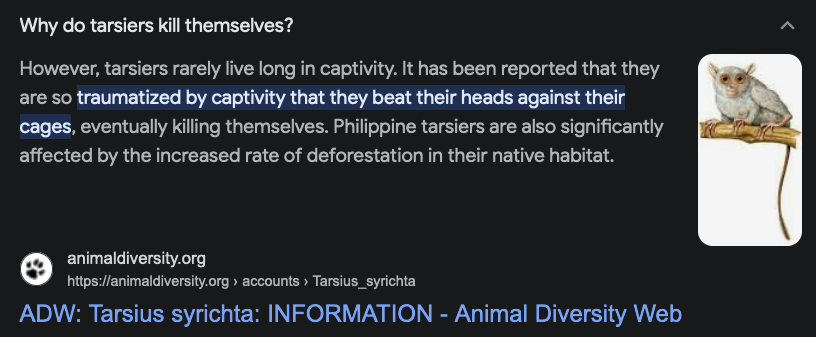
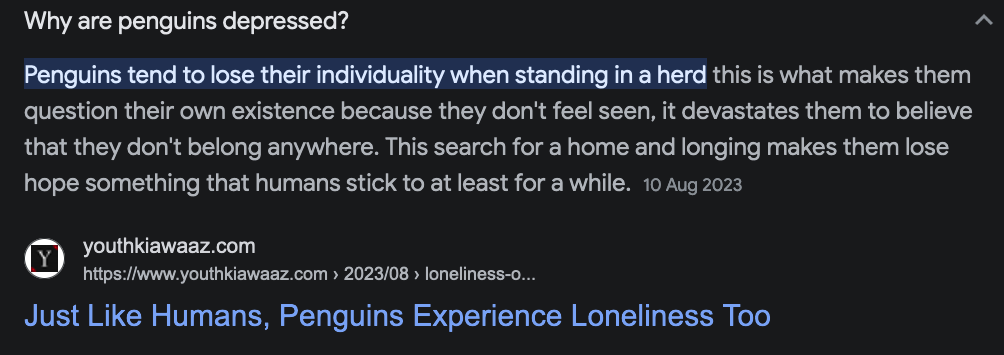
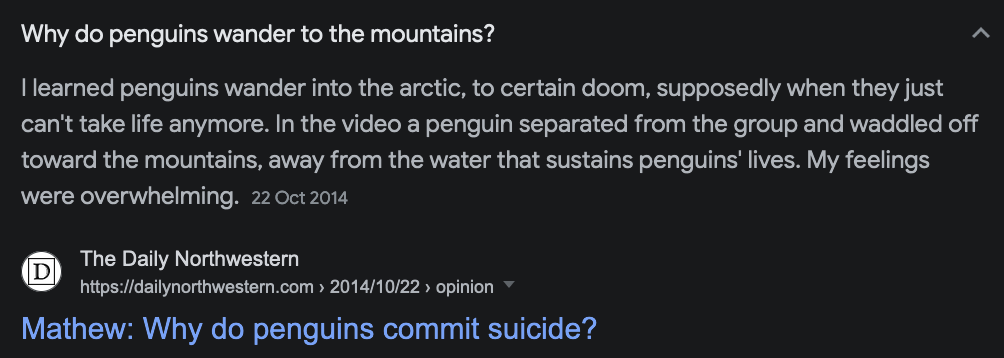
Attached is a video documenting a penguin's path towards its own existential demise. Turns out our existential demise is not unique to the human experience but also in other beings that have 'confessed' that 'life is no longer worth the stress hormones that it subjectively given to them', though this is very context dependent and I can't talk about this in detail, but all it can be decipher out of this is that, the 'outward ability' to sense and perceive the world, may not be always beneficial for us, as the tools to perceive the world through sensory perceptions are always as it is, the oxytocin, dopamine, and stress hormones that are secreted are also always as it is, the option to opt out of life is still to be deciphered by their own 'willingness' to opt out of life, the final standing actor in behavior, 'the sense of self awareness that stood above emotional-driven context'.
I'm a believer that one's opinion about life is reflected on how one treats life and inevitably how one chooses to opt out of life:
But if it is hard to fix the precise instant, the subtle step when the mind opted for death, it is easier to deduce from the act itself the consequences it implies. In a sense, and as in melodrama, killing yourself amounts to confessing. It is confessing that life is too much for you or that you do not understand it. Let's not go too far in such analogies, however, but rather return to everyday words. It is merely confessing that that "is not worth the trouble."
In the face of such contradictions and obscurities must we conclude that there is no relationship between the opinion one has about life and the act one commits to leave it? Let us not exaggerate in this direction. In a man' s attachment to life there is something stronger than all the ills in the world. The body' s judgement is as good as the mind's, and the body shrinks from annihilation. We get into the habit of living before acquiring the habit of thinking. In that race which daily hastens us toward death, the body maintains its irreparable lead.
Albert Camus, Myth of Sisyphus
Through this logic, then when one understands life and the beauty of it, then one will have much more will to life as it can see the beauty of it in every day circumstances, even the most mundane things of it.
By looking at this sad penguin and the universal feelings of 'grief' in animals:
In August 2018, an orca calf died off the coast of Vancouver Island, and its mother, Tahelqua, kept its corpse with her for 17 days straight. The images made news around the world. Two years ago, at the Chimfunshi Wildlife Orphange Trust in Zambia, a female chimp named Noel attempted to clean the teeth of her dead adopted son Thomas, dubbed a “mortuary ritual” by many. Elephants are famed for visiting the remains of dead family members, stroking their bones or at times rocking back and forth in what resembles a “vigil”.
In 1972 Jane Goodall witnessed a young male chimp named Flint die just a month after the death of his mother Flo – the male was so despondent following her death that he stopped eating or socializing to the point that he simply didn’t survive.
The occurance of 'these behaviors' appear to animals that have higher sense of 'intelligence' that at least understands 'context'. In which understanding context comes from a good sense of perception and awareness. Good sense of perception and awareness are 'basely' important for survival, as the environment demands the existence of those ability, if those abilities were deemed 'useless' the species that bears those function will simply die out and we humans will never know of them. But such of the nature of contextual sadness, it's like a function of 'sensory perceptions' backfires from something of a crucial use to be the same thing that causes existential dread.
Awareness of our surrounding and the arrival of nervous system and understanding context as initially a mean for survival is not 'absolutely good' but nothing is absolutely good.
As without understanding sadness, happiness feels un-special, but it just how we are wired to perceive those things.
As without ever experiencing boredom, falling in love will not feel special and adventurous to us.
Only because we happen to 'feel' those feelings, we began to appreciate those feeligns and when those happy feelings are taken away from us, we began to feel 'sadness'. Sadness and happiness requires context, and that's something that a sophisctacted brain can understand and feel and experience.
Epi-Fucking-Genetics, The Conditioning Brain
Now we have understand what does it mean for 'intelligent beings' that understand context, as from a fly that learns to escape a 'slapping hand' that it can sense before it crush its body and fly ever so annoyingly, to a lion that waits silently behind the bush to ambush the pray, and finally to the penguin that understands 'what does it mean to eat a fucking fish and to be loved and to commit suicide'.
Early-life stress during critical periods of brain development can have long-term effects on physical and mental health. Oxytocin is a critical social regulator and anti-inflammatory hormone that modulates stress-related functions and social behaviors and alleviates diseases. Oxytocin-related neural systems show high plasticity in early postpartum and adolescent periods. Early-life stress can influence the oxytocin system long term by altering the expression and signaling of oxytocin receptors. Deficits in social behavior, emotional control, and stress responses may result, thus increasing the risk of anxiety, depression, and other stress-related neuropsychiatric diseases. Oxytocin is regarded as an important target for the treatment of stress-related neuropsychiatric disorders.
Stress refers to an organism’s insufficient physiological response to any mental, emotional, or physical pressure, whether real or imagined [1]. While stress can positively impact behavior and brain health, chronic stress can also have substantial and persistent negative effects. Various forms of stress imposed at different life stages can affect individuals, such as early-life stress (ELS) and adult stress. ELS encompasses adverse experiences of the neonatal period, early and late childhood, and adolescence (e.g., abuse, neglect, loss of parental care, hunger, extreme poverty, and family/community/school violence).

Social and emotional abnormalities in pups experiencing ELS and the role of oxytocin therapy. Generally, dam mice exhibit parenting behaviors such as nest building, pup retrieval, grooming, and licking, whereas unproductive virgin mice generally neglect pups. Virgin mice can learn parenting skills upon oxytocin administration. When mothers are briefly separated from pups daily without interruption, dam mice will neglect pups, and this establishes an ELS model for mice. ELS mice have altered levels of anxiety, depression, and socialization compared to normal mice in many experiments, and this may contribute to the increased vulnerability to stress-related neuropsychiatric disorders such as SAD, depression, and ASD in both ELS mice and humans in later life. In these disorders, treatment with oxytocin partially alleviates symptoms. ELS—early-life stress; WT—wild type; MS—maternal separation; SAD—social anxiety disorder; ASD—autism spectrum disorder.

In stressful situations, disruption of oxytocin causes changes in the hippocampus and amygdala. Oxytocin levels rise in the PVN (Paraventricular nucleus) under acute stress conditions, and magnOT neurons decrease activity in the PVN of ELS mice. Oxytocin released from the PVN can modulate inhibitory interneurons in the hippocampus and magnOT (Magnocellular neurons) in the PVN project to CeL (Lateral portion of the central amygdala) and form glutamatergic synapses with OXTR-expressing GABAergic neurons. OXTR(Oxytocin receptor)-expressing neurons in the CeL can project to the CeM. HIP—hippocampus; CeL—lateral portion of the central amygdala; CeM—medial part of the central amygdala; AC—accessory nuclei. Up arrow: increase; Down arrow: decrease.
Above are cited from The Role of Oxytocin in Early-Life-Stress-Related Neuropsychiatric Disorders, Int J Mol Sci, Jul 2023
Basically concluding that apparently, our external circumstances, in which in this case the subject experiment is its mother is taken away from him, and it causes 'disruption of oxytocin causes changes in the hippocampus and amygdala.' Inevitably the development of its brain and how it perceives the world in the future.
In humans, we have a conditioned brain that is wired for survival, in which this social activity between mother to child is encouraged and enforced by nature.

LMAOOOOOOOO.
Now it has just become full blown ironic, on how we see 'rats' as 'mere disgusting rats' and to look them with disgust and to see how much of our behavior are reflected by them even from the moment of our birth. Both are the bilaterally the same anal to mouth developed organism but the other bears more sophisticated version of the brain but yet still have an updated patch on how it perceives love and hate.
I have another article that supports this phenomena, Genetic, epigenetic, and environmental factors controlling oxytocin receptor gene expression:
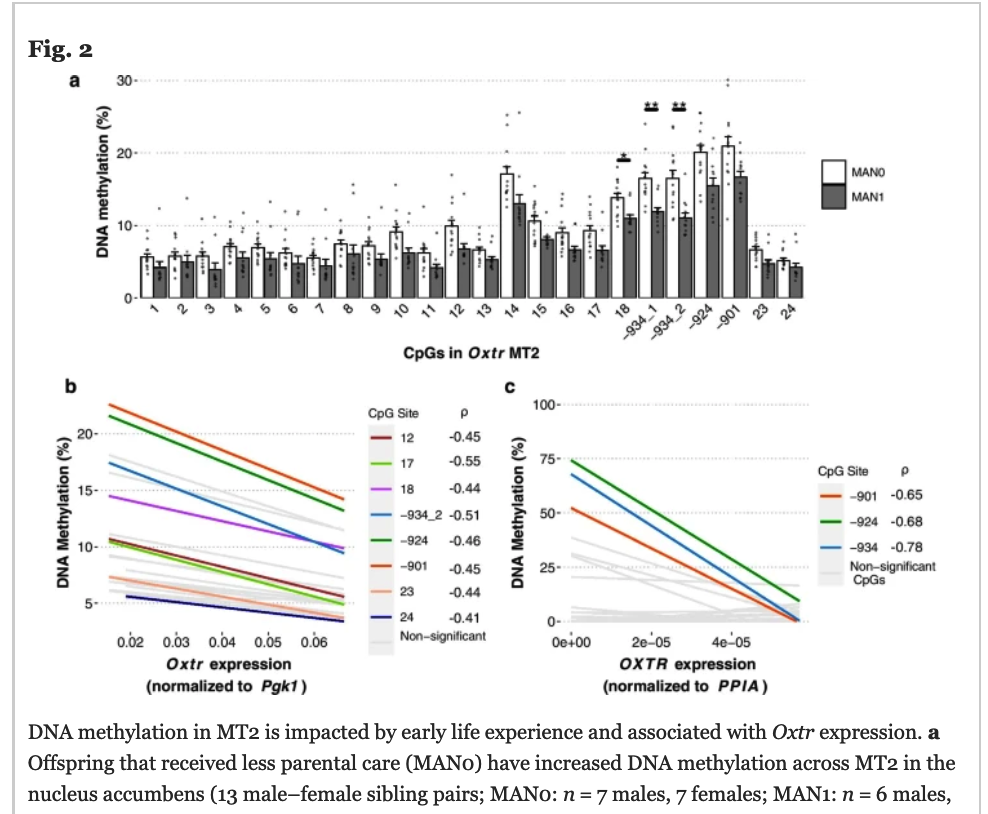
Epigenetics is basically saying, context and environment shapes your fucking brain, even through the fucking gene expression.
But there is still one other thing, a flavor to the self, that not only it can be conditioned by the externals but also can be changed by defining by himself.
Folding in on Itself
In occassion of our lives, there are moments where we simply meet 'bad people' or people that we deem to have a bad influence on us. We choose to who we want to interact with, usually based on our own self interest, while sometimes out of the interest of others, but that's because we don't want to make them sad and we have conscience, but that again, is because it is at our own self interest not to hurt their feelings.
I think, as much as scientist can plug an FMRI into us and analyze our roots of motivation and even the ability of 'autobiographical memory' is regulated in the brain:
The DMN (Default Mode Network) is a set of brain regions that exhibits strong low-frequency oscillations coherent during resting state and is thought to be activated when individuals are focused on their internal mental-state processes, such as self-referential processing, interoception, autobiographical memory retrieval, or imagining future.
But one thing to note here is that, the brain allows itself to 'EXPERIENCE' in which the genes does not say shit about '100% defined experience', it REACTS to our experience'. It reflect back on itself after experiencing the sensations of living. That is for me the core concept of 'having free will' while it is undeniably attached to our 'biological functions' but the force of nature of it, allows experiencing and that is ultimately free to us to think and hope and to grief.
It rewards good thoughts and so does bad thoughts. As I would like to quote a phenomena written in Viktor Frankl's Book:
When F—— told me about his dream, he was still full of hope and convinced that the voice of his dream would be right. But as the promised day drew nearer, the war news which reached our camp made it appear very unlikely that we would be free on the promised date. On March twenty-ninth, F—— suddenly became ill and ran a high temperature. On March thirtieth, the day his prophecy had told him that the war and suffering would be over for him, he became delirious and lost consciousness. On March thirty-first, he was dead. To all outward appearances, he had died of typhus.
Those who know how close the connection is between the state of mind of a man—his courage and hope, or lack of them—and the state of immunity of his body will understand that the sudden loss of hope and courage can have a deadly effect. The ultimate cause of my friend’s death was that the expected liberation did not come and he was severely disappointed. This suddenly lowered his body’s resistance against the latent typhus infection. His faith in the future and his will to live had become paralyzed and his body fell victim to illness
And we have reached to the point of 'rational existence' in which it has been more relatively advanced than ever, that our thoughts about life influences the fucking BODY.

Low level of gratitude is associated with depression (Cregg & Cheavens, 2020; Wood et al., 2008), a risk factor for dementia (Livingston et al., 2020; Livingston et al., 2017); therefore, our results are consistent with previous findings. In recent years, studies have examined neurophysiological responses related to the experience of positive emotions, including gratitude during social interactions (Balconi & Fronda, 2021; Balconi et al., 2019). These experimental studies showed that an increase in cognitive performance occurred after the gratitude of gift exchange (Balconi & Fronda, 2021; Balconi et al., 2019), which was underpinned by increased activity in the prefrontal cortex (Balconi et al., 2019). We found that gratitude was associated with the volume of several brain regions involved in cognitive function. These results indicate that experience of gratitude acts directly on the brain and cognitive function.
This has become FULL BLOWN TRIP BALLS now. We start from the environment sculpting neural complexity in which those neural structure helps the species perceive the world into how the self using that neural structure can help itself SHAPE ITSELF.
Have you ever read something that insane? The true magnitude of what it means to be a fucking human being? To have influence to its own health and how it perceive the beauty of the world?
From the world to the mind, and from the mind seeing the beautiful world.
The everchanging environmental stimulus shaped the self, now we have oxytocin, stress hormones, etc, and now we can secrete those oxytocin as simple as calling our family and friends?

Knowing the 'meta' DOES NOT DISCOUNT THE VALUE OF THE META. By knowing the feelings of 'love' are laced within, the moment that we cuddle with our loved one, or even the moment that a mother lays her recently born child around her hands, knowing it does not discount the value of it. Even more it even puts an emphasis of being grateful to the beauty of the 'nature' of life.